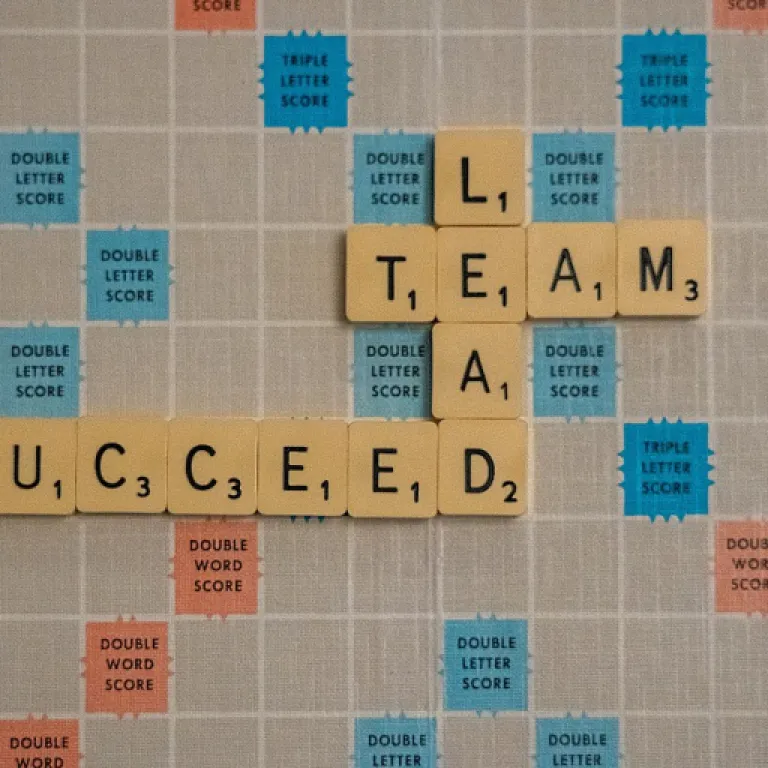
The Purpose of Screening Interviews
The Importance of Initial Candidate Assessment
Screening interviews play a crucial role in the hiring process by serving as the initial filter for identifying qualified candidates. These interviews are designed to assess whether a candidate possesses the basic qualifications and experience required for a specific job position. By conducting screening interviews, companies can efficiently narrow down the pool of applicants, saving valuable time and resources in the subsequent stages of the recruitment process.
In essence, the primary purpose of a screening interview is to determine if a candidate is a potential fit for the company and the role. This involves evaluating their skills, experience, and personality traits to see if they align with the company's needs and culture. Screening interviews can take various forms, including phone calls, video screenings, or even brief in-person meetings, depending on the company's preferences and the nature of the position.
Moreover, screening interviews help hiring managers identify candidates who not only meet the technical requirements but also exhibit the right personality traits and cultural fit for the company. This initial assessment is crucial in ensuring that the best candidates move forward in the interview process, ultimately leading to more informed hiring decisions.
For those interested in exploring opportunities in diverse career paths, understanding the role of screening interviews can provide valuable insights into how to prepare effectively and present oneself as a strong candidate. For more information on career opportunities and how to navigate the hiring process, you can explore diverse career paths.
Key Elements of a Screening Interview
Understanding What Makes a Screening Interview Effective
Screening interviews serve as the initial step in the interview process, designed to evaluate candidates before proceeding to more comprehensive stages of hiring. To ensure an effective screening interview, it's crucial to incorporate key elements that not only assess the technical skills but also consider the alignment with company culture and specific job requirements.- Interview Questions: The primary focus should be on crafting questions that allow you to gauge the skills and qualifications pertinent to the position. This is where the interview questions become valuable, focusing on both the technical proficiencies and the candidate's experience.
- Personality Traits and Fit: Identifying personality traits helps in assessing whether a candidate matches the management style and cultural fit of the company. Does the candidate exhibit traits that resonate with the values you uphold? This helps narrow down the best candidates who align with the company’s mission and work environment.
- Use of Video Screening: Incorporating video screening interviews can save time and resources both for the hiring manager and the candidates. Video platforms allow for an initial assessment of the candidate's communication skills and their enthusiasm for the role.
- Assessing Experience: Alongside qualifications, understanding a candidate's previous experience gives insight into their potential fit and readiness to take on responsibilities. It is important to balance between evaluating technical capabilities and the softer aspects such as adaptability and interpersonal skills.
- Pre Screening for Essential Qualifications: Conducting screening interviews efficiently involves verifying essential qualifications such as educational background and previous job experiences. This ensures that only the qualified candidates move forward in the hiring process, streamlining the time and effort involved.
How Screening Interviews Differ from Other Interviews
Distinctive Aspects of Screening Interviews
Screening interviews serve a unique role in the hiring process, setting them apart from other stages of interviews. Primarily, they are designed to identify qualified candidates early on, saving time for both the company and the candidates by filtering out those who may not be a fit for the job position. Screening interviews often take the form of a phone or video screening, allowing hiring managers to assess certain key elements such as the candidate's experience and specific qualifications. The questions asked tend to focus more on determining if the candidate meets the basic requirements of the job rather than deeply probing into their personality traits or management style. While traditional interviews dive deeper into the nuanced aspects of a candidate's personality and cultural fit, screening interviews are more about understanding the basics: Does the candidate have the right experience? What about the expected salary range? Is their availability aligned with the company's scheduling needs? Unlike later stages of the interview process, screening interviews are usually shorter and more structured. They aim to highlight whether a candidate's qualifications match what the company is looking for without delving into complex interview questions that assess soft skills or long-term potential. By conducting screening interviews effectively, companies can ensure they proceed with only the best candidates that fit the basic role requirements, thereby streamlining the subsequent stages of the interview process. This approach not only makes the hiring process more efficient but also enhances the overall quality of the candidates selected for in-depth interviews, helping to align them with the company culture and role expectations. Understanding these differences highlights why developing effective screening strategies is essential for recruiting the right talent. For more insights on how to enhance the process, here is a link to strategies for coaches to enhance team performance that may offer valuable techniques and approaches.Common Challenges in Screening Interviews
Challenges Commonly Faced in Initial Candidate Assessment
In the early stages of recruitment, screening interviews often present a unique set of challenges for hiring managers aiming to identify the best candidates for open positions. Understanding these challenges helps companies refine their hiring process and ensure they are conducting screening interviews effectively. One predominant challenge is time management. With numerous candidates applying for various roles, ensuring sufficient time for each screening interview can be tricky, especially when the process involves multiple rounds. Scheduling these interviews properly without causing delays can determine whether the best candidates remain interested in the position or move on to other opportunities. Another issue arises from the variability in candidate responses to interview questions. Each candidate may interpret questions differently based on their experience and personality, making it harder to evaluate candidates on the same scale. This challenge underscores the importance of having a structured set of specific interview questions designed to assess relevant skills, personality traits, and cultural fit consistently. Moreover, conducting effective interview screenings remotely, especially through video screening, adds another layer of complexity. Technical difficulties can detract from the candidate's experience and affect how well the hiring team can evaluate an applicant's suitability for the company culture or a specific management style. Lastly, aligning candidate expectations with the company's offerings—such as salary range and job responsibilities—requires thorough communication during these initial encounters. If screening interviews fail to address these aspects, misunderstandings may arise later in the interview process, potentially leading to candidates withdrawing from consideration. By recognizing these challenges, companies can implement strategies to refine their screening process, ultimately enhancing their ability to identify qualified candidates who are the right fit for the role and company culture.Best Practices for Conducting Effective Screening Interviews
Implementing Effective Screening Techniques
Conducting screening interviews effectively is crucial in the hiring process. It helps in identifying the best candidates who align with the company culture and the specific job requirements. Here are some best practices to ensure your screening interviews are productive and efficient:
- Prepare Thoroughly: Before the interview, review the candidate's resume and any pre-screening materials. This preparation allows you to tailor your questions to assess the candidate's fit for the position and the company.
- Standardize Interview Questions: Develop a set of core questions that focus on the key elements of the role. This standardization ensures consistency across interviews and helps in comparing candidates effectively.
- Focus on Key Competencies: Identify the essential skills and personality traits required for the job. Ask questions that reveal the candidate's experience and how they align with these competencies.
- Utilize Video Screening: Video interviews can save time and resources while providing a sense of the candidate's communication skills and personality. They are particularly useful for remote positions or initial screenings.
- Assess Cultural Fit: Evaluate how well the candidate's values and work style align with the company's culture. This can be as important as technical skills in determining long-term success.
- Provide Clear Information: Clearly communicate the role's responsibilities, the company's expectations, and the salary range. This transparency helps manage candidate expectations and reduces the likelihood of future misunderstandings.
- Efficient Interview Scheduling: Use scheduling tools to streamline the process and minimize delays. This efficiency reflects positively on the company and respects the candidate's time.
By following these best practices, companies can enhance their screening interviews, leading to better hiring decisions and a more effective interview process overall.
The Impact of Screening Interviews on Hiring Decisions
The Influence of Screening Interviews on Final Hiring Decisions
Screening interviews play a pivotal role in shaping the hiring process, serving as a critical filter to identify the best candidates for a position. By effectively narrowing down the pool of applicants, these interviews help hiring managers focus their efforts on individuals who are most likely to fit the company culture and meet the job requirements.
One of the primary impacts of screening interviews is the time saved in the overall recruitment process. By weeding out candidates who do not meet the basic qualifications or whose personality traits do not align with the company’s values, the hiring team can allocate more time to evaluate qualified candidates in subsequent interviews. This efficiency not only speeds up the interview process but also reduces the resources spent on interviewing unsuitable candidates.
Furthermore, screening interviews provide valuable insights into a candidate’s potential fit within the company. Through targeted interview questions, hiring managers can assess specific skills, experience, and even management style preferences. This early evaluation helps ensure that only those candidates who demonstrate a strong alignment with the company’s needs and culture move forward in the hiring process.
However, the impact of screening interviews extends beyond just filtering candidates. They also set the tone for the candidate’s experience with the company. A well-conducted screening interview can enhance the candidate’s perception of the company, making them more likely to accept a job offer if extended. Conversely, a poorly managed interview can deter even the most qualified candidates from pursuing the position further.
In conclusion, screening interviews are a vital component of the hiring process, influencing not only the selection of candidates but also their perception of the company. By focusing on best practices and addressing common challenges, companies can ensure that their screening interviews effectively contribute to making informed and strategic hiring decisions.













